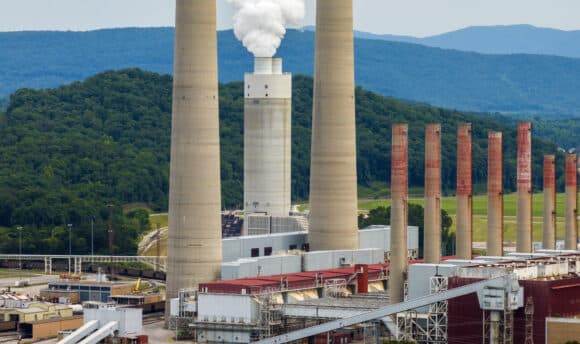Allianz, Generali and Munich Re underwrite Europe’s biggest new coal power plant
Major European insurers are backing the growth of Poland’s coal industry, supporting companies which are undermining international efforts to combat climate change and causing thousands of early deaths a year across the continent, reveals a briefing from the Insure Our Future campaign published today.
Polish companies are planning to build 10GW of new coal power plants – including 3.2GW already in construction – and to develop new open-pit mines holding 3.2 billion tonnes of lignite, the dirtiest form of coal.
Dirty Business: Insurance companies supporting the growth of Polish coal reveals that European insurers have invested more than €1.3 billion in Polish coal companies and have signed at least 21 contracts underwriting existing operations and new developments since 2013. Without insurance cover new coal projects could not be built and existing operations would have to shut down.
Allianz, the world’s second biggest insurer, is leading a consortium underwriting the biggest coal power plant under construction in Europe, an 1800MW expansion at Opole due to start operating in 2019. It includes Generali; Munich Re’s subsidiary Ergo Hestia; and Polish insurer PZU.
Research by NGOs supporting Insure Our Future reveals the five insurers that are the biggest underwriters of Polish Coal: Munich Re’s Ergo Hestia has insured 12 projects since 2013; Allianz, nine; Generali, eight; Talanx’s subsidiary Tuir Warta, seven; and PZU, six.
Six European insurers are financing the industry through their Polish pension fund subsidiaries, with more than €1.3 billion of investments in Polish coal companies. AEGON, Allianz, Aviva, Nationale Nederlanden, AXA and Generali collectively own 8.6% of PGE, Poland’s biggest energy company. It plans to develop more than 5GW of new coal power including Opole and to develop new open-pit mines holding 2.2 billion tonnes of lignite. By contrast Poland’s PZU holds 1.9% of PGE.
Lucie Pinson, campaigner with Insure Our Future and report author, said: “Insurers backing Polish coal are supporting an industry which causes thousands of early deaths a year, putting themselves on the wrong side of the fight against dangerous climate change, and risking their shareholders’ money. There can be no excuse for supporting new coal mines and power plants, and insurers should withdraw cover and investment from existing projects as soon as possible. NGOs will be watching their actions closely and holding them to account.”
A growing number of insurers are turning against coal. AXA, Zurich and SCOR announced restrictions on underwriting in 2017 and Swiss Re is due to announce a similar policy in coming months. They are also among 15 insurers who have divested an estimated €16 billion in equities and bonds.
Allianz was one of the first insurers to divest from coal, but its policy does not cover the $1 trillion of funds it manages on behalf of third parties. Munich Re has taken limited action to divest. Generali has yet to take any action on coal.
Climate talks will shine spotlight on insurers supporting Europe’s biggest coal polluter
Poland has the most polluting coal industry in Europe, responsible for an estimated 5,830 premature deaths every year including 4,690 in other countries. Its greatest impacts outside its borders are in Germany and Italy, with an estimated 620 and 430 premature deaths respectively. Coal pollution can cause strokes, heart and lung disease and lung cancer.
Poland’s coal industry will come under increasing scrutiny when it hosts the UN’s annual climate change conference in Katowice in December 2018. Coal is the biggest single source of carbon emissions, and last year the UN called for no new coal-fired power stations worldwide and an accelerated phase-out of existing plants as key steps to achieving international climate goals.
Kuba Gogolewski, from the Polish NGO Foundation “Development YES Open-Pit Mines NO”, said: “Polish coal companies are defying global efforts to combat climate change with their aggressive growth plans. Companies which insure and finance them have no place to hide and must take action now if they wish to preserve their reputation.”
Opole, little more than 100 kilometres from Katowice, is a symbol of the Polish government’s decision to grow its coal industry despite costs to health, climate and the economy. State-owned power company PGE cancelled the €2.2 billion project as uneconomic in 2013 but it was revived under political pressure from the government.
Recent research by the financial think tank Carbon Tracker reveals that more than half of EU coal plants are already loss-making, and the falling cost of renewables, tougher air quality standards, and rising carbon prices will push this up to 97% by 2030. Poland could avoid losses of €2.7 billion by closing unprofitable coal plants early, it finds.



